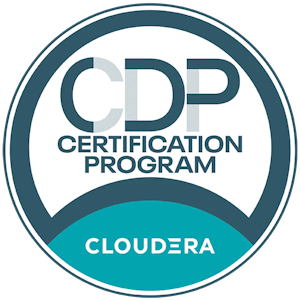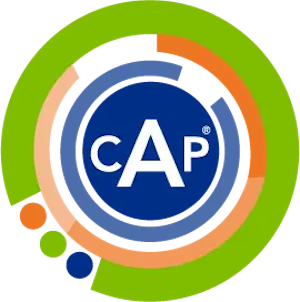Typically, you take a course in data analytics for one of three reasons: career advancement, career transition, or career exploration.
Career advancement
Data analytics courses can provide crucial training and assessment in data analytics skills for students looking to upskill in order to advance their careers and either perform their existing job better or land a new position.
Data analytics courses will generally teach and assess one, several, or all of the following skills:
Programming
Programming is a crucial skill if you want to manipulate data and perform advanced analyses, or create efficient data pipelines. Data analytics courses frequently teach students Structured Query Language (commonly SQL), which is used for database management. They will sometimes also teach Python, a general-purpose programming language used for more advanced analytics, including machine learning, and R, a programming language with specific application for statistics and data visualization.
Statistical analysis
Statistical analysis is at the heart of data analytics, the catalyst behind turning data into actionable insights. Data analytics courses vary in breadth and depth of their statistical analysis instruction, from fundamental statistics concepts to techniques like regression, optimization, to advanced predictive modeling.
Data management
Programming and statistical analysis skills aren’t useful if you can’t efficiently and effectively manage data along the data pipeline, from raw data collection, to storage, to preparation, to analysis. Some courses will also teach skills like data mining for big data sets.
Data visualization
The insights data analysis produces aren’t nearly as valuable if they can’t be effectively communicated. For business intelligence operations, it’s also common practice to create data dashboards that can help stakeholders assess key performance indicators (KPIs) at a glance. For this reason, many data analytics courses offer training in data visualization techniques and tools like Tableau.
Advanced skills
In addition to these skills, many data analytics courses also offer training in machine learning, and even deep learning — areas more often in the purview of data scientists.
Career transition
Data analytics courses also provide value to those without existing analytics experience who are looking to break into the field, with many providing comprehensive training that can launch an individual into an entry-level position, regardless of background. Potential titles for those transitioning careers with a data analytics course include: data analyst, business analyst, business intelligence analyst, and, in some cases, data scientist, all of which offer salaries well in excess of the US median annual wage in the US of $45,760.
Data analyst
A data analyst typically collects, prepares, and analyzes data to produce new learnings to support the operations of their company, which they communicate to internal and external stakeholders through compelling data visualizations. According to Salary.com, in the US the average data analyst salary is $81,719.
Business analyst
A business analyst’s responsibilities overlap considerably with a data analyst’s — in fact, the two titles are sometimes basically synonymous. If there is a distinction, however, it’s in a business analyst’s focus. They will also collect, prepare, and analyze data to extract insights, but more often this will be in support of larger business goals such as reducing costs, driving revenues, or entering a new market. According to Salary.com, in the US the average business analyst salary is $79,770.
Business intelligence analyst
A business intelligence analyst’s responsibilities are similar to those of a business analyst, but they generally focus on producing informational support and dashboards monitoring KPIs and market and industry performance. According to Salary.com, in the US the average business intelligence analyst salary is $85,278.
Data scientist
As we noted above, there is overlap in the skillsets of data scientists and data analysts, and in some cases a graduate of a data analytics course is able to land a data scientist position, especially if they have existing computer science and advanced mathematics experience. Data scientists leverage this experience to devise, develop, and launch new approaches to data analysis. According to Salary.com, in the US the average data scientist salary is $139,631. While it is possible to become a data scientist with a data analytics education, if your goal is to become a data scientist, we’d recommend you look into data science courses.
Career exploration
While most data analytics courses emphasize skill development, they are also valuable if you’re just looking to learn more about the field and potential career opportunities. Free massive open online courses (MOOCs) are a great low-risk way to explore data analytics and get a better idea of what a data analytics professional’s day-to-day might be.
Why should you take a data analytics course instead of pursuing a data analytics master’s degree?
For college graduates looking to advance or transition their careers in or into data analytics, another option is to enter one of an increasing number of data analytics master’s programs. Data analytics master’s are generally two-year programs that award an advanced degree upon their completion. Many of these programs are open to those without extensive background in data analytics, and holding one of these degrees can provide the holder with expanded career opportunities, especially for senior positions. So why pursue a data analytics course instead?
Compared to data analytics master’s, data analytics courses are typically shorter in duration, less expensive, and less time-intensive. They are also sometimes targeted towards one skill or capability. That makes them a great option for someone who is time-crunched, wants to make a career transition quickly, and lacks the savings or desire to go into debt to fund an expensive college education.
If the idea of earning a graduate degree in data analytics appeals to you, however — and there are many reasons it should — check out our data analytics master’s guide for more.
What are the different kinds of data analytics courses?
Data analytics courses have such a wide variety of use-cases in part because there are so many different kinds of them. Here, we will focus on the most common three data analytics courses: data analytics certification programs, data analytics bootcamps, and data analytics certificate programs.
Data Analytics Certification Programs
What are they?
Data analytics certifications are credentials received in exchange for passing an exam that communicate to potential employers that an individual is competent in a particular skill or professional capability. Data analytics certification exams are often the culmination of a course of study that provides instruction in that skill, though exam-takers usually also have the option of taking the exam without taking a course or preparing through self-paced materials. Often, software providers like Cloudera will offer certification programs for their data analytics software to allow analysts the opportunity to demonstrate their ability, to gain new users, and to increase market-share in the analytics market.
Who’re they for?
Certification programs are for those who want to demonstrate and advertise a particular skill to potential employers. Generally, these individuals already have some, or even significant, background in analytics.
How much do they cost?
Most certification providers only require exam-takers to pay for the exam, which usually costs several hundred dollars.
Data Analytics Bootcamps
What are they?
Data analytics bootcamps are months-long, intensive courses of study — many, but not all, online — geared towards helping learners land an entry-level data analytics job. In addition to a comprehensive data analytics curriculum and an independent capstone project, these bootcamps provide career services to help students craft their resumes, practice their interview skills, and ultimately receive a job offer. Some even offer a job guarantee or income share agreement that allows students to get a refund if they don’t find employment within a certain time-frame or only pay tuition once they’ve found a job. However, with these offers, it’s always important to read the small print to avoid disappointment.
Who’re they for?
Data analytics bootcamps are for those who want to transition into data analytics without paying for a costly and time-intensive degree program. While some bootcamps will stipulate that students enter with existing experience in programming or statistical analysis, many allow complete beginners to enroll.
How much do they cost?
The average bootcamp cost $11,727 in 2020. Students are often given the option of installment plans, financing, or income-share plans where they pay back a fraction of their income once they get a job. Some bootcamps also offer money-back job-guarantees. As we mentioned above, for all of these offers it’s important to always read the small print.
Data Analytics Certificate Programs
What are they?
Data analytics certificate programs are a broad category of courses that offer training in a particular data analytics skill, a set of skills, or even a comprehensive skillset. Upon completion of the course, students receive a certificate that they can display on their resumes and LinkedIn. Many certificate programs offer instruction in the same areas as bootcamps, with some even offering comprehensive data analytics curricula, but there are generally more opportunities for self-paced and asynchronous learning, often at a lower cost.
Who’re they for?
Data analytics certificate programs are great options for aspiring analytics professionals who want more flexibility in curriculum and modality than is possible in bootcamps or master’s programs. They are also great for those who wish to avoid the substantial expense of bootcamp or degree tuition. Finally, given the many free options, data analytics certificate programs are great for those who want to explore a data analytics career before committing significant time and money to the pursuit.
How much do they cost?
Data analytics certificate programs range in cost from free to several thousands of dollars, depending on the educational provider’s reputation, the modality, and the extent of the curriculum.











